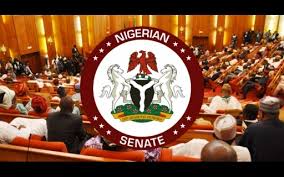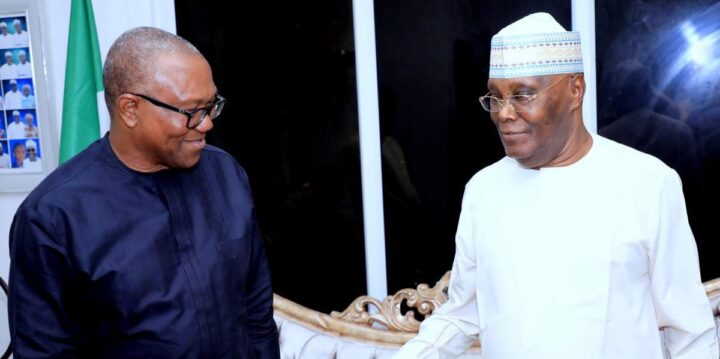Senate Advances Key Electoral Bill to Ensure Credible Future Elections

A significant legislative milestone has been achieved in Nigeria’s Senate with the passage of a bill to repeal the Electoral Act 2022 and enact the Electoral Bill 2025, which successfully cleared its second reading. Senate President Godswill Akpabio announced the passage during Wednesday’s plenary session following an overwhelming voice vote in favor from senators. The bill has been referred to the Senate Committee on Electoral Matters for detailed deliberation and a public hearing, with a directive to report back within two weeks.
Sponsored by Simon Lalong (APC, Plateau South), who chairs the Senate Committee on Electoral Matters, the bill seeks to strengthen the legal framework governing Nigeria’s elections. Initially presented for its second reading the previous Thursday, it was temporarily stepped down to allow broader consultation among lawmakers before resurfacing for extensive debate on its general principles during Wednesday’s session.
In his presentation, Mr. Lalong acknowledged that while the Electoral Act 2022 introduced notable reforms, it exposed several weaknesses in the electoral system, including delays in releasing election funds, disputes over voter registers, conflicting interpretations of electronic result transmission, and weak enforcement mechanisms for electoral offences. The proposed Electoral Bill 2025 aims to address these shortcomings by enhancing the independence of the Independent National Electoral Commission (INEC) and shielding it from undue political interference and government control.

The debate saw senators offering diverse perspectives and advocating for specific reforms. Senator Adamu Aliero (APC, Kebbi North) emphasized the need for clear provisions on electronic result transmission and strengthened use of the Bimodal Voter Accreditation System (BVAS) to ensure transparency. He stressed removing inconsistencies to reflect the true will of the people, lamenting the presence of armed politicians during elections. Orji Kalu (APC, Abia North) called for collective efforts to build a transparent electoral process and clearly define the role of security agencies, noting public frustration with post-election litigation. Tahir Munguno (APC, Borno North) advocated for transparent party primaries, reduced election spending, and robust measures against vote-buying, stating that the bill aims to ensure candidates reflect public aspirations. Agom Jarigbe (PDP, Cross River North) supported provisions for electronic result transmission and independent candidacy, viewing the legislation as a potential turning point for democracy.
Olalere Oyewunmi (PDP, Osun West), the deputy minority leader, called for stricter penalties for electoral offenders, including INEC and security officials who compromise elections, noting the inadequacy of past sanctions. Patrick Ndubueze (APC, Imo North) proposed compiling and announcing election results within six hours of voting, while Adams Oshiomhole (APC, Edo North) stressed the need to eliminate electoral violence, accusing politicians of arming thugs. Seriake Dickson (PDP, Bayelsa West) suggested empowering INEC to determine election winners and curb political party excesses, deeming it crucial for Nigeria’s democracy. Abdul Ningi (Bauchi Central) supported the bill for promoting participation and transparency, while Ali Ndume (Borno South) underscored the importance of reviewing the electoral framework to restore public confidence. Enyinnaya Abaribe (Abia South) noted that the judiciary has failed to keep pace with technological innovations, suggesting that issues stem more from legal interpretations than technology itself.
In his closing remarks, Senate President Akpabio acknowledged improvements in Nigeria’s elections since 2015 but emphasized the need for further progress toward full transparency. He stated, “INEC must be held accountable because they control electoral materials. We’ve seen improvements, but more work is needed.” The senators then overwhelmingly adopted the bill through a voice vote.
The proposed Electoral Act 2025 seeks a comprehensive overhaul of Nigeria’s electoral framework, aiming to strengthen governance, enhance INEC’s independence, and promote transparency and accountability. Key reforms address funding mechanisms, candidate qualifications, voter registration, political party operations, campaign financing, and prosecution of electoral offences.
Notable amendments include Section 3(3), mandating early release of INEC funds for timely electoral preparations. Section 5 requires INEC to submit audited financial statements within six months after each financial year. Section 10(2)(c) proposes making the National Identification Number (NIN) mandatory for voter registration. Sections 12(1)(d) and 12(2) recognize inmates’ voting rights, contingent on INEC facilitating their registration and participation.
Section 27(5–7) prescribes clear notice periods and election timetables, mandating that presidential and gubernatorial elections occur no later than 185 days before an incumbent’s tenure expires. Section 44 introduces mandatory early voting, potentially for essential workers. A critical reform in Section 60(5) makes electronic result transmission compulsory to enhance transparency and reduce malpractice. Additional amendments include provisions for diaspora voting and establishing an independent Electoral Offences Commission, replacing the Permanent Voter Card (PVC) with alternatives like NIN or passports to modernize elections, restore public trust, and ensure every vote counts.
Recommended Articles
Tensions Rise as FCT Council Polls Approach: Police Impose Movement Ban Amidst Electoral Preparations

The FCT is set for Area Council elections on February 21, 2026, a critical test for INEC under the new Electoral Act, fe...
Electoral Showdown: Pressure Mounts on Senate for Real-Time Electronic Result Transmission

The ongoing debate over Nigeria's electoral reforms intensifies as the Social Democratic Party (SDP) and civil society o...
2027 Electoral Act in Crisis: Delays Spark Suspicion and Urgent Calls for Passage

Significant delays in amending Nigeria's 2022 Electoral Act are causing alarm among stakeholders, threatening preparatio...
National Assembly Erupts: Lawmakers Clash Over Electronic Vote Transmission as Police Teargas Protesters

Nigeria's National Assembly is in turmoil over the Electoral Act Amendment Bill, with lawmakers divided on mandatory ele...
Peter Obi's Political Earthquake: ADC Defection Fractures LP, Reshapes Opposition Ahead of 2027

Peter Obi, former Labour Party presidential candidate, has officially defected to the African Democratic Congress (ADC),...
Electoral Showdown: NLC Threatens Mass Action Amidst Fears Over Election Credibility and Senate's Reluctance on Reforms

The Nigerian Senate's rejection of mandatory real-time electronic transmission of election results in its Electoral Act ...
You may also like...
Super Eagles Fury! Coach Eric Chelle Slammed Over Shocking $130K Salary Demand!
)
Super Eagles head coach Eric Chelle's demands for a $130,000 monthly salary and extensive benefits have ignited a major ...
Premier League Immortal! James Milner Shatters Appearance Record, Klopp Hails Legend!

Football icon James Milner has surpassed Gareth Barry's Premier League appearance record, making his 654th outing at age...
Starfleet Shockwave: Fans Missed Key Detail in 'Deep Space Nine' Icon's 'Starfleet Academy' Return!

Starfleet Academy's latest episode features the long-awaited return of Jake Sisko, honoring his legendary father, Captai...
Rhaenyra's Destiny: 'House of the Dragon' Hints at Shocking Game of Thrones Finale Twist!

The 'House of the Dragon' Season 3 teaser hints at a dark path for Rhaenyra, suggesting she may descend into madness. He...
Amidah Lateef Unveils Shocking Truth About Nigerian University Hostel Crisis!

Many university students are forced to live off-campus due to limited hostel spaces, facing daily commutes, financial bu...
African Development Soars: Eswatini Hails Ethiopia's Ambitious Mega Projects

The Kingdom of Eswatini has lauded Ethiopia's significant strides in large-scale development projects, particularly high...
West African Tensions Mount: Ghana Drags Togo to Arbitration Over Maritime Borders

Ghana has initiated international arbitration under UNCLOS to settle its long-standing maritime boundary dispute with To...
Indian AI Arena Ignites: Sarvam Unleashes Indus AI Chat App in Fierce Market Battle

Sarvam, an Indian AI startup, has launched its Indus chat app, powered by its 105-billion-parameter large language model...